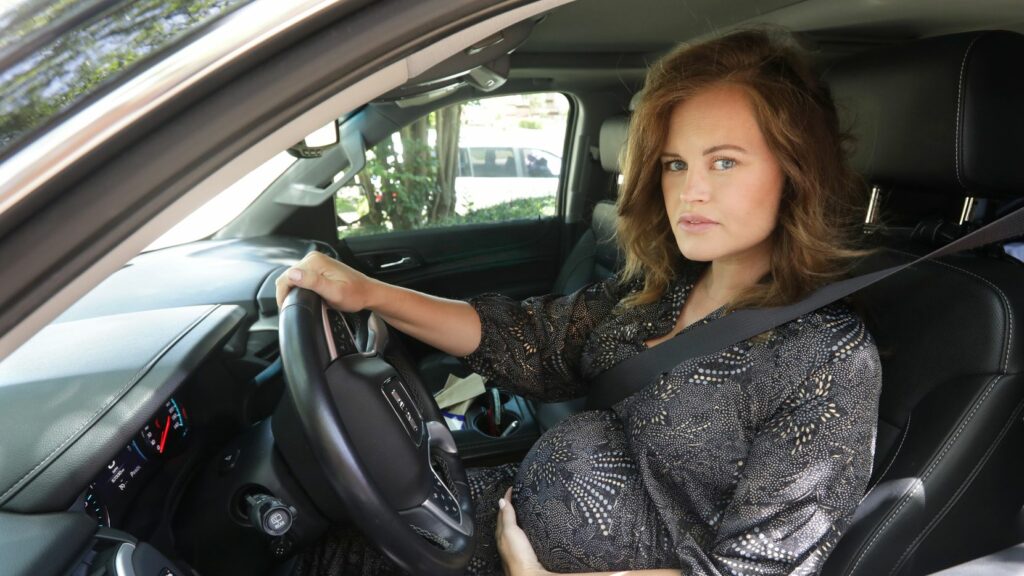The Dallas Morning News reported that a pregnant woman was driving in the High Occupancy Vehicle lane. The article includes an interview and, of course, many bad legal takes. You can read the article, but I want to point out a few very important things.
First, in my personal opinion, she should not have gotten a ticket in the first place. None of these traffic laws are really there to help protect people or make them safer. All traffic laws are simply a matter of increased revenue for the state. This isn’t something that’s easy to convince you if you’re not already in that mindset, but I’m just stating my own opinion so you can see that I am setting aside my bias for the purpose of discussing the actual facts and legal issues about this case.
The Law
The Law can be downloaded in PDF form directly from the Texas Congress. As it is written in the Texas Transportation Code, Chapter 224. Subchapter F Section 224.151:
(4) “High occupancy vehicle lane” means one or more lanes of a highway or an entire highway where high occupancy vehicles are given at all times, or at regularly scheduled times, a priority or preference over some or all other vehicles moving in the general stream of all highway traffic.
And in order to understand that, we have to see the definition of a “high occupancy vehicle” which is clearly defined just above that:
(3) “High occupancy vehicle” means a bus or other motorized passenger vehicle such as a carpool or vanpool vehicle used for ridesharing purposes and occupied by a specified minimum number of persons.
We can see that by the very definition of the law, this wasn’t about ride sharing. The argument is that the car was occupied by the minimum number of persons, and that when Roe V Wade was overturned, her unborn baby was recognized as a person. Assuming that’s true, that only fills one part of the argument, that the car was being occupied by an additional person. It does not fulfill the part about ride sharing or pooling.
The Purpose
The purpose of the law, which can sometimes be used to interpret how the law can be applied, was clear. It was created to encourage ride sharing and public transportation, to reduce the number of cars on the road, alleviating traffic, pollution, high fuel usage, etc. The government incentivized the use of fewer cars with a special priority lane.
What’s interesting about this, however, is that this also would preclude anyone under the legal age to drive on their own from using these lanes. A born child in a special baby seat has no ability to drive in a separate car on his own, and would still have to be taken by someone else. Having that child in the car does not, in any way, resemble any of the actions that the government was attempting to promote. Of course, under that understanding, it would also seem that a family taking a road trip is not participating in the ride sharing anyway, as they plan to travel as a group regardless of the incentive. Does this mean that the intent does not earn them the privilege of using this priority lane? Of course, if that was the way the law had been written, this would introduce all kinds of other problems like the burden of proof on the government to show the motive for having so many people in the car. Instead, they wrote it to simply include the number of persons in the car.
But what is a person?
Roe V Wade
Roe v Wade, as well as Dobbs vs Jackson Women’s Health Organization are grossly misunderstood by the public. Most people who argue pro life vs pro choice end up on a single argument about whether or not an unborn fetus is a life or a person. But that’s not particularly what the two supreme court cases are about.
When it comes to laws and legal authority, words can have very complex and varying meanings. I’m not going to inject my own opinion here, just what the actual law is and how it works. This is ultimately more important than attempting to bend the law to serve my own opinion, as many do.
At the heart of Roe V Wade were several issues including privacy and the privilege of government protection via the 14th amendment. It wasn’t about whether or not a fetus was a person, but whether or not a fetus gets the government’s protection.
A Person
Since Roe v Wade was not about determining the definition of the word person, or whether an unborn child was a person, the HOV law is not impacted by either of these decisions. In fact, if you read through the definitions of the motor vehicle code you will see several definitions of a “person”, sometimes including corporations, officers, etc. This is highly contentious for those who don’t understand and will argue the merits of rulings that say corporations are people. Definitions in law are usually preceded by “in this chapter …” This means that the definition is only valid within the context of those statutes.
For example, in Chapter 52, Section 52.002, a person is defined as:
(4) “Person” means an individual, association, organization, trust, partnership, or corporation.
Clearly it wouldn’t make sense to attempt to argue that you can use the HOV lane because you have a corporation in the car with you. Of course, this definition is under a section heading that reads “Sec. 52.002. DEFINITIONS. In this chapter:”, specifically limiting that definition of a person to that chapter. This makes it clear that this definition is not for use within the context of the HOV law.
So what is the definition of a person for the HOV? The code does not have a definition for the word, so likely this will be interpreted by a court based on the common law definition of a person. However, this is a state law, so what the state interprets its own laws to mean can only be done by the state and not by the federal government. We’ve established that the abortion cases do not seek specifically to define what a person is, but even if they had, that ruling would only impact federal law. The only way the federal government could change the enforcement of a state law is if the state law violated a right of a US citizen. In order for that to happen, it must first be proven that using an HOV lane is a right.
To inject my own opinion here, I will say that courts have ruled that using the roads for personal use is a right, that driver’s licenses are only required for commercial use, that most people use and assume they are required to use a license, that using their own car is a privilege, not a right, and that the use of an HOV lane would then also be a privilege. Since privileges are granted, and this one particularly granted by the state, then the state would retain full jurisdiction over the interpretation of who receives that privilege, and there is not much the federal government can legally do about that.
If you’re interested in my arguments about the right to use public roads, the court cases that agree with that sentiment, and my experience using them without issue for the past decade, please read some of my other articles on the subject.
Facing Change
We all have our beliefs about the role of government and what it should do. Some of those beliefs are based on the laws themselves, but sometimes the government acts in a way contrary to those beliefs because it must adhere to the law. If the government won’t adhere to the law it claims to enforce, what good is having a law to begin with?
Federal courts have ruled many times that police have no obligation to protect us. You might ask yourself, if they have no obligation to help us, what are we paying them for? But the fact of the matter is that all government employees, elected or not, are obligated to follow the rules written for them, and to not do the things that are prohibited. This means that they can do things that they are not ordered to do and not prohibited from doing, but it doesn’t mean they have to do those things. That also means they can not be sued for doing those things.
If we don’t like that, we should seek to change the laws, rather than enforce laws that do not exist. Of course this brings up many other problems that we don’t have any authority to change the laws ourselves, and the public confidence in elected representatives is always so low that we’ll never get the changes we want. That’s another story and an argument for a complete overhaul of the system.

